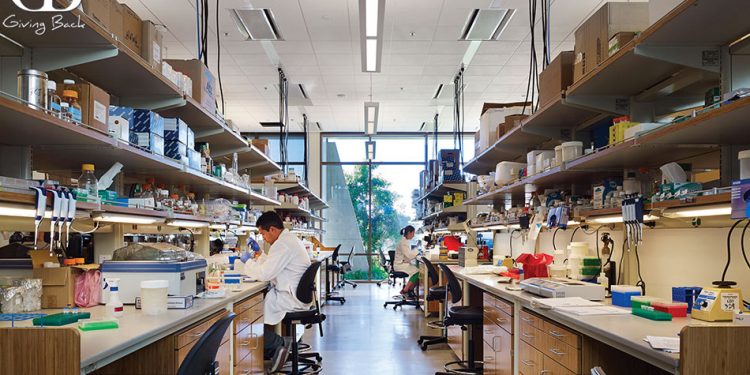J. Craig Venter Institute Fundamental Science Researchers Answer the Call

The J. Craig Venter Institute (JCVI) is a world-renowned, nonprofit genomics research institute whose work in sequencing the genome of the first free-living organism and the first draft human genome launched the genomic revolution. While also long-focused on understanding the genetics of infectious disease agents like influenza and Zika, this work took on new meaning as the world was inundated earlier this year by the outbreak of SARS-CoV-2, the novel coronavirus. As soon as news of the coronavirus broke, JCVI scientists quickly focused their expertise on essential COVID-19 research.
Foundational scientific research like that done at JCVI, is the bedrock for future breakthroughs. This has been especially true over the past nine months. JCVI’s leadership in viral sequencing and analysis for more than 25 years, coronavirus research for more than 15, and pioneering work in synthetic biology, empowered the team to deploy several new approaches to address this rapidly escalating pandemic.
A primary focus of the global biomedical community has been the rapid development of a safe vaccine, but the evolution of vaccines can be a long, difficult, expensive and high-risk undertaking. In an effort to improve this, JCVI has collaborated with a number of pharmaceutical companies on new vaccine development. JCVI’s expertise began more than a decade ago with a collaboration with Novartis. The teams developed a rapid new production method of influenza virus vaccine stocks using synthetic DNA approaches. This new methodology of using synthetic genes for the speedy development of a vaccine held great promise for battling emerging infectious diseases and changed the field of vaccinology. When the race to develop a COVID-19 vaccine began, researchers from around the globe used these same methods to prepare vaccine candidates for clinical testing.
Today, JCVI scientists, Sanjay Vashee, Ph.D. and Lauren Oldfield, Ph.D. are working with collaborators at the University of Maryland to use synthetic genomic tools, including a rapid, modular reverse genetic system, to better understand the biology of SARS-CoV-2 in vitro and in vivo. They are also creating a synthetic genomics platform to develop reporter cell lines, enabling rapid surveillance of live SARS-CoV-2 virus in different types of environments or on different surfaces to help provide actionable data about the public health risk associated with its stability on surfaces, in aerosols, and viral shedding from infected individuals, and in turn how this translates to transmission of the virus to people.
Knowing that testing was another crucial component of tracking and understanding the spread of COVID-19, JCVI researcher, Anna Edlund, Ph.D., is leading several testing research projects, including a JCVI research study, to find minimally invasive, accurate and cost-effective testing methods (such as using saliva) that are not affected by supply chain bottlenecks. JCVI staff volunteers are also part of this research project to help ensure they can safely continue working in the office. In the coming weeks, she and her team will begin testing samples for other respiratory viruses, including influenza, in an effort to mitigate other seasonal outbreaks.
COVID-19 has been a grim but valuable reminder of the critical importance of scientific research. As the world continues to battle this pandemic, researchers at JCVI remain steadfast in their commitment to advancing treatments, improving testing and learning as much as possible about the virus. Only through groundbreaking science like that at JCVI will the world bring an end to this pandemic.
www.jcvi.org





